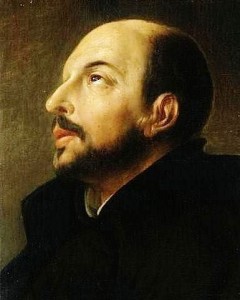Msgr. John Esseff and Kris McGregor reflect on the Feast of the Presentation of Jesus in the Temple and the deep spiritual significance of this moment. He recounts the Gospel passage from Luke 2:22-40: about the faithfulness of Mary and Joseph in following Jewish law, the prophetic revelation given to Simeon, and the devotion of Anna. It draws attention to the immediacy of encountering Christ—not just in the temple, but within our own hearts, homes, and daily lives. We should recognize Jesus within ourselves first so we can see Him in our families, communities, and ultimately in the world. True relationship begins with Christ dwelling within us, transforming how we see and love those around us.
The mission that follows from this encounter is carrying Christ into the world beyond the church walls. Whether at work, in family life, or in everyday interactions, we need to be conscious of Christ’s presence within them and in those we meet.
Discerning Hearts reflection questions for this episode:
- Feast of the Presentation Significance: What significance does the Feast of the Presentation hold, and how does it commemorate the biblical account of Joseph and Mary presenting Jesus in the temple?
- Fulfillment of Jewish Law: How did Joseph and Mary, devout Jews, fulfill the requirements of the Jewish law by presenting Jesus in the temple 40 days after His birth?
- Encounter with Simeon: Reflect on Simeon’s encounter with the infant Jesus. How does Simeon’s recognition of Jesus as the Messiah reflect the fulfillment of divine promises?
- Prophecy and Blessing: Explore the powerful prophecy spoken by Simeon and the blessing bestowed upon Mary and Joseph. How do these prophetic words foreshadow the challenges and significance of Jesus’ life?
- Prophetess Anna: Consider the role of Prophetess Anna in the presentation scene. How does her devout life and recognition of Jesus contribute to the unfolding narrative?
- Interior Encounter with Jesus: Reflect on Msgr. Esseff’s emphasis on the immediate encounter with Jesus within oneself. How can one cultivate this interior relationship with Jesus in daily life?
- Recognizing Jesus in Others: In what ways does Msgr. Esseff encourage recognizing Jesus in family members and others in the community? How does this recognition contribute to building relationships?
- The Temple Within: How does Msgr. Esseff underscore the concept of being the temple of God and encountering Jesus within? What practices, like morning prayer, does he suggest for fostering this awareness?
- Family as a Sacred Unit: Reflect on Msgr. Esseff’s insights into seeing family members as reflections of Christ. How can recognizing Christ within family members strengthen familial bonds?
- Mission Beyond the Church: Consider Msgr. Esseff’s perspective on the mission after leaving the church, bringing Jesus into the world. How does this concept align with the universal availability of Jesus in daily life?
- Prayer for Trust: Explore the efficacious novena to the Sacred Heart of Jesus. How does this prayer, rooted in trust, align with the themes discussed in the podcast?
- Applying Psalm Responsorial: Apply the words of the responsorial psalm from the Mass to personal reflection. How can one open the portals of their heart to let the King of Glory, Jesus, enter?
When the days were completed for their purification
according to the law of Moses,
Mary and Joseph took Jesus up to Jerusalem
to present him to the Lord,
just as it is written in the law of the Lord,
Every male that opens the womb shall be consecrated to the Lord,
and to offer the sacrifice of
a pair of turtledoves or two young pigeons,
in accordance with the dictate in the law of the Lord.
Now there was a man in Jerusalem whose name was Simeon.
This man was righteous and devout,
awaiting the consolation of Israel,
and the Holy Spirit was upon him.
It had been revealed to him by the Holy Spirit
that he should not see death
before he had seen the Christ of the Lord.
He came in the Spirit into the temple;
and when the parents brought in the child Jesus
to perform the custom of the law in regard to him,
he took him into his arms and blessed God, saying:
“Now, Master, you may let your servant go
in peace, according to your word,
for my eyes have seen your salvation,
which you prepared in the sight of all the peoples:
a light for revelation to the Gentiles,
and glory for your people Israel.”
The child’s father and mother were amazed at what was said about him;
and Simeon blessed them and said to Mary his mother,
“Behold, this child is destined
for the fall and rise of many in Israel,
and to be a sign that will be contradicted
—and you yourself a sword will pierce—
so that the thoughts of many hearts may be revealed.”
There was also a prophetess, Anna,
the daughter of Phanuel, of the tribe of Asher.
She was advanced in years,
having lived seven years with her husband after her marriage,
and then as a widow until she was eighty-four.
She never left the temple,
but worshiped night and day with fasting and prayer.
And coming forward at that very time,
she gave thanks to God and spoke about the child
to all who were awaiting the redemption of Jerusalem.
When they had fulfilled all the prescriptions
of the law of the Lord,
they returned to Galilee, to their own town of Nazareth.
The child grew and became strong, filled with wisdom;
and the favor of God was upon him.
Lectionary for Mass for Use in the Dioceses of the United States, second typical edition, Copyright © 2001, 1998, 1997, 1986, 1970 Confraternity of Christian Doctrine;
Msgr. John A. Esseff is a Roman Catholic priest in the Diocese of Scranton. Msgr. Esseff served a retreat director and confessor to St. Mother Teresa. He continues to offer direction and retreats for the Sisters of the Missionaries of Charity. Msgr. Esseff encountered St. Padre Pio, who would become a spiritual father to him. He has lived in areas around the world, serving in the Pontifical missions, a Catholic organization established by Pope St. John Paul II to bring the Good News to the world especially to the poor. He continues to serve as a retreat leader and director to bishops, priests, sisters, seminarians and other religious leaders around the world.
 Practical Steps for Prayer – Meditation and Contemplation with Fr. Timothy Gallagher
Practical Steps for Prayer – Meditation and Contemplation with Fr. Timothy Gallagher




 St. Francis de Sales Novena – Day 5
St. Francis de Sales Novena – Day 5